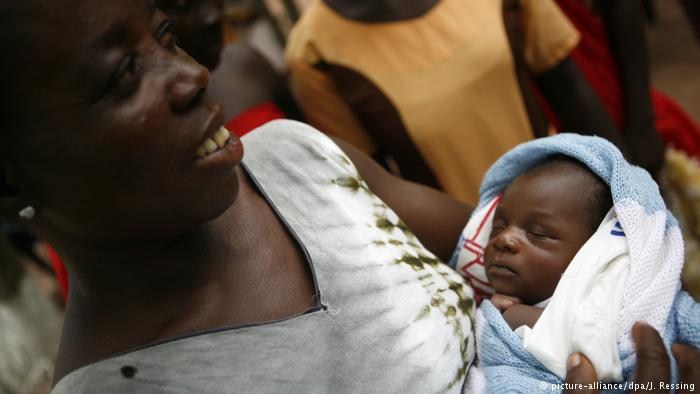Ghanaian labor law requires that companies provide new mothers with at least three months maternity leave with pay. However as the World Health Organization (WHO) continues to push for an increase to six months, a debate over the issue has arisen in Ghana, leaving many women divided over whether or not maternity leave should be extended.
When DW spoke with new mother Anita Shibenaab she only had three days left before she was expected back at work. But she says her baby is still too young and dependent on her.
“When I return to work her neck will not yet be stable enough, so I will have to carry her on my back. Maybe if I could have at least four months leave, it would be much easier to care for her.”
More time off needed
Like Anita, every nursing mother in Ghana is entitled the three months paid maternity leave under the Ghanian labor act. But not everybody agrees this is long enough. Doctor Seidu Barichisu from the Tamale West Hospital and a new mother herself told DW that the current rules are inconveniencing both mothers and their colleagues.
“My work demands that I travel a lot. So sometimes when I go out into the districts I need somebody to hold my baby and follow me around. This is difficult because sometimes in the middle of work the baby cries and everybody will have to stop to make sure I can take care of the baby. It is not just an inconvenience for me, but also for the team that I work with.”
The Ghana Medical Association agrees with WHO’s assessment that pushing maternity leave to six months in order to allow for exclusive breastfeeding should be a priority. According to nutritionists, this period is important in ensuing that mothers are able to provide their children with adequate care.
Home not always best
However Patience Boahene who works with the northern regional health directorate believes that home is not always the best place for mothers to take care of their newborns.
“The idea of giving women six months leave is that it would give them time to both rest and cater for the needs of their baby. But if women do not have enough support at home, they will become even more stressed. So the emphasis should be on turning our workplaces into baby-friendly environments so that we can take them with us and work comfortably.”
Poor job security pressuring new mothers
Many Ghanaian employers are against the idea of extending maternity leave, both in an effort to avoid monetary losses and the need to find more employees to fill positions temporarily. Limited job opportunities means new mothers are more likely to return to their workplaces as soon as possible, even if their leave is required by law.
Nadia experienced this after the birth of her now one-year-old daughter when she returned to work after only two months out of fear she may lose her job. She told DW about the difficulties she faced.
“It is not easy to care for a child who is no older than three months in the workplace. At that age the child is too small and breastfeeding and managing sickness while trying to concentrate at work becomes too much.”
As long as employers refuse to budge on the issue or guarantee job security for new mothers, it is likely that this debate will continue in Ghana for some time.
Credit: DW


